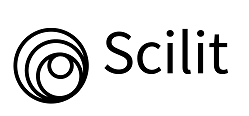MEKANISME PENGAWASAN BADAN PENGAWAS PEMILIHAN UMUM PROVINSI NUSA TENGGARA BARAT TERHADAP PARA PIHAK YANG MELANGGAR LARANGAN KAMPANYE PADA TAHAPAN PEMILU SERENTAK 2024
DOI:
https://doi.org/10.59896/gara.v19i1.234Keywords:
Supervision, Elections, CampaignsAbstract
Talking about elections cannot be separated from the implementation of campaigns, because campaigns are a very important process in holding general elections. An election campaign is the activity of election participants or other parties appointed by election participants to convince voters by offering a vision, mission, program and self-image of election participants. The aim of this research is to determine the supervisory mechanism of the Election Supervisory Agency in minimizing violations of campaign prohibitions and to obtain an overview of the obstacles in monitoring violations of campaign prohibitions. The method used in this research is a normative-empirical legal research method, namely research that examines regulations related to election supervisory bodies, post-conflict regional election regulations which are supported by expert opinions, in addition to coming directly to the field to find out how they are implemented. This research used the statutory approach, conceptual approach, sociological approach. The results of the research show that the monitoring mechanism carried out by the Election Supervisory Board of West Nusa Tenggara Province to minimize campaign violations is direct supervision by conducting site inspections and inspections, campaign location events and also carrying out participatory supervision by involving the community in the form of election outreach, political education for voters and opinion polls about the election. Apart from that, carrying out indirect supervision by monitoring and reviewing reports from the officials or work units concerned and from the political party information system, while the obstacle in terms of supervision, namely the limited number of supervisory officers, is an opportunity for participants or candidates to commit violations or cheat. And the still high level of ego between sectors causes weak coordination and control in carrying out what is required.
References
Angger Sigit Pramukti, Meylani Chahyaningsih, (2016), Pengawasan Hukum Terhadap Aparatur Negara ,Yogykarta : Pustaka Yustisia
Christopher Sinaga. (tt). Analisis Terhadap Peranan Badan Pengawas Pemilu Dalam Menangani kampanye Hitam Pada Pemilihan Umum Presiden republik Indonesia Tahun 2014 Berdasarkan UndangUndangnomor 15 Tahun 2011 Tentang Penyelenggaraan Pemilihan Umum. DHARMASISYA, Jurnal Program Magister Hukum Fakultas Hukum Universitas Indonesia.
Dede Sri Kartini. (2017). “Demokrasi dan Pengawasan Pemlu”, Jurnal Of Government, 2 Desember, 2017.
M.Afifuddin, (2020), Membumikan Pengawasan Pemilu, Jakarta: PT Alex Media Komputindo.
Mutakallim. (2016). “Pengawasan, Evaluasi dan Umpan Balik Stratejik”, Volume V, 2, Desember, 2016
Novembri Yusuf Simanjutak. (2017). “Pemantauan dalam Proses Penyelenggaraan Pemilu”, Jurnal Bawaslu, 3, 2017.
Peraturan Komisi Pemilihan Umum Nomor 15 Tahun 2023.
Rosady Ruslan, (2013), Kiat dan Strategi Kampanye Republik Relation, (Jakarta: PT. Raja Grafindo persada)
Siti Famah. (2018). Kampanye sebagai komunikasi polik: Esensi dan Strategi dalam Pemilu, Jurnal Resolusi Vol 1 No 1 Juni 2018.
Soerjono Soekanto dan Sri Mulyadi, (1995), Penelitian hukum normatif, suatu tujuan singkat, raja grafindo persada. Jakarta.
Sunaryati Hartono, (1994), Penelitian Hukum di Indonesia pada Akhir Abad ke-20, Alumni, Bandung.
Undang-Undang Dasar Negara Kesatuan Republik Indonesia Tahun 1945
Undang-Undang Nomor 7 Tahun 2017 Tentang Pemilihan Umum
Downloads
Published
How to Cite
Issue
Section
License
Copyright (c) 2025 ASHARI ASHARI, RAHMADANI RAHMADANI, ISKANDAR SUKMANA

This work is licensed under a Creative Commons Attribution-ShareAlike 4.0 International License.














